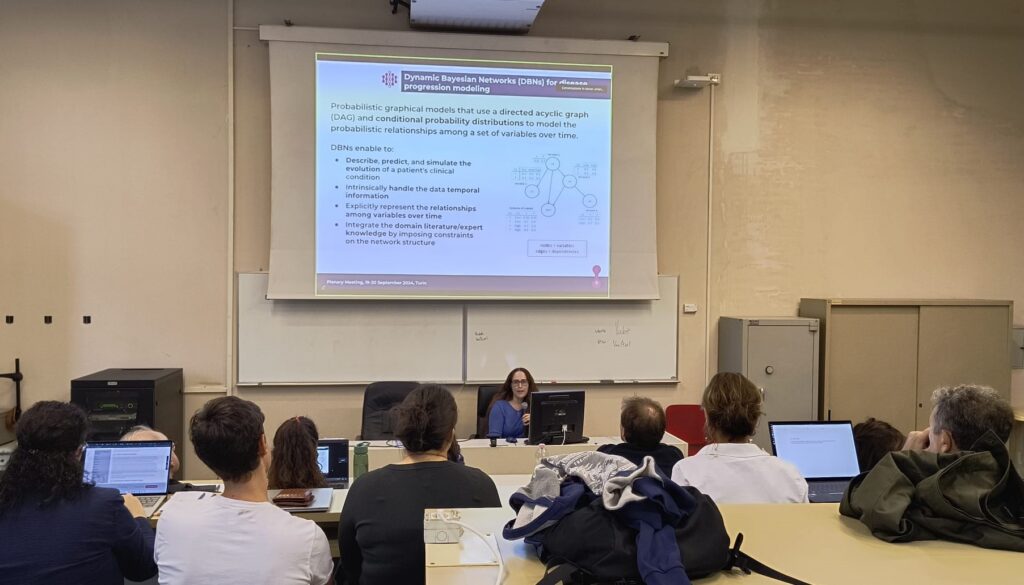The 8th plenary meeting of the BRAINTEASER project is currently taking place in Turin (19-20 September 2024). During these two days, all project partners are presenting their updates across the 12 work packages. Our group leads Work Package 7 (WP7), focused on “AI models for disease progression.” The objectives of WP7 include developing models to predict disease progression in amyotrophic lateral sclerosis (ALS) and multiple sclerosis (MS), incorporating new variables at various individual levels that are currently underutilised in the literature, validating these models on external datasets, and using them to create in-silico patient simulators.
In recent months, our team has been working on a task aimed at developing an in-silico patient simulator capable of modelling and simulating disease evolution, specifically focusing on changes in patients’ independence in domains affected by ALS and MS. Today, our post-doc Erica Tavazzi presented the results of these efforts. The models, based on dynamic Bayesian networks and developed using dynamic clinical data from ALS and MS patients, have successfully captured the relationships between key variables over time, allowing for a detailed simulation of disease progression. Moreover, we demonstrated the models’ effectiveness in evaluating the impact of specific biomarkers on disease progression and the efficacy of preventive treatments.
We extend our sincere thanks to the Department of Neuroscience at the University of Turin for hosting and organising this meeting. We are proud to be part of the BRAINTEASER consortium, which aims to harness advanced AI technologies to improve the management and understanding of neurodegenerative diseases, ultimately enhancing patients’ quality of life.


